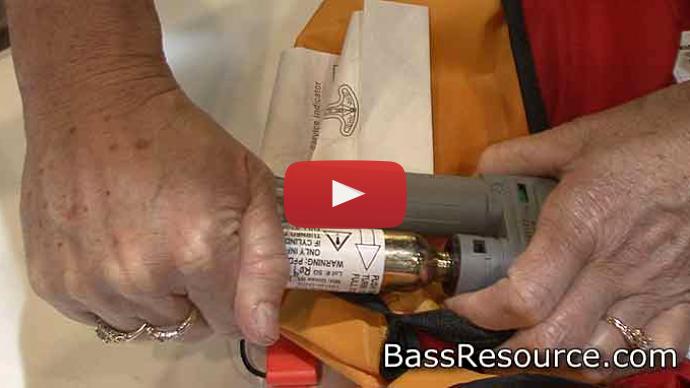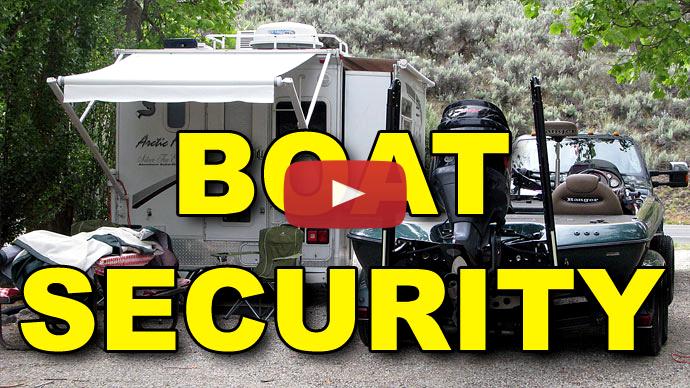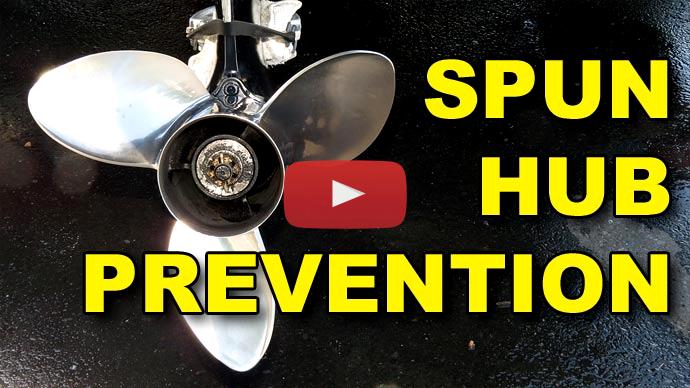Hey, folks. Glenn May here with bassresource.com, and today I'm off the water, and I wanna talk to you about something that's been on my mind for a while now, and that's water safety. And I'm not talking just, you know, wearing your life vest. We all know to wear it. I'm not gonna preach about that.
In the recent years, we've had some big tragedies in the bass fishing community where we've had some serious injuries and even loss of life. And all these people were wearing life vests. They were following all the safety procedures, but they had something or another happen on the boat, either they lost power for some reason, or they got caught in some rough weather. But the problem is, is that a 911 one call was never made. Nobody got a phone call. And everybody had cell phones, so you can't speculate as to what happened. Maybe their batteries died. Maybe they were in an area that didn't have cell phone coverage, or, you know, if they got thrown overboard, perhaps their cell phone got wet and wouldn't work anymore. But the lesson learned here is that you can't rely on your cell phone for an emergency when you're out on the water. It doesn't always work, especially coverage can be really scattered and you might not have any coverage.
So it got me thinking like, how can you ensure that you have better chances of survival in an emergency situation if you don't have a cell phone? And I started researching it and I spent a lot of time looking into the different options and researching a lot of different products to come up with what I'm doing to ensure that I have better chances of survival. So I saved all that for you guys, and I just wanna walk you through what I'm doing.
So, here's my life vest. And as you can see, I got several things attached to it. So I'm gonna walk you through this stuff. Probably the one that's most interesting to you is this one right here. So let's just get right down to it. This here is what's known as a personal locator beacon, okay? It's not a cell phone. This is not a cell phone. This sends a distress signal via satellite to all the emergency authorities, land, water, sea, lake, land, what have you, air, whole nine yards, everybody who does any rescues, it sends a distress signal to them and lets them know your exact GPS location.
Now, this, I think, would have been the number one thing that would have helped in some of these situations. This is the thing that if you've ever watched like Deadliest Catch and whatnot, the guys that are out there in deep sea, in the Arctic ocean, this is the type of thing that they're wearing so they can be located quickly and hopefully get their lives saved. It's not a toy.
Now, because it sends off an emergency signal, the way that it works is not water-activated. You don't want any false alarms. So let me show you this up close, what this does. You can see, this is by ACR, this little button right here, this is a cover. You have to activate it by pressing and holding the button. So, what you need to do is, there's an antenna here that you release. Out comes the antenna. And then when you slide this up, it uncovers that button, and then you press that button and you hold it for two seconds and it activates it, and in come the Calvary. You can get a response maybe as quickly as in 15 minutes, and that may be the difference between life and death.
Now, these, they last about five years battery life. It's just AA batteries, or AAA batteries. Yeah. They only use these AAA batteries, so it doesn't like use a lot of batteries. And the thing is, is when you replace them, you have to take it to a service place to have them fix it for you. So that's a little bit of an extra cost.
In addition, you know, these aren't cheap. This one is a digital one. It's got a digital readout on it, and this one costs about 350 bucks at the time of this filming. There's one that doesn't have the LED readout, and it's 50 bucks or less. I like the LED because there's a test button down here and the readout will let you know the condition of this unit and make sure that it's working properly. It's just added, you know, peace of mind.
Three hundred and fifty bucks may sound really expensive, but if you look at it from the five-year life span of the battery, that's about, you know...Or if it's $300, it's like 60 to 70 bucks a year, 60 to 70 bucks a year. Now, if you could get auto insurance for that amount, I trust you would be all over it, right? You would buy it in a heartbeat. And this here is gonna save your life. And you got to think about it a little bit more than just your life, but it's about your friends, your family, your kids. You have a responsibility to them and a device like this can be the difference between them visiting you in the hospital bed and coming to your funeral. I kid you not. And if you decide to just change the batteries after five years and extend it another 10 years, then you're looking 30, 35 bucks a year, is what the cost is. Okay? It's a no-brainer guys. It's a no-brainer.
Now, this floats. So I have it attached to my life vest because if you get thrown from the boat and this gets out of reach, then what good is it gonna do? You have to have it attached to you. This also has a strobe on it and has an infrared strobe on it. Now, I don't like them for a reason, but we'll get to that in a second. Infrared obviously helps if there's a helicopter crew looking for you and they're using infrared technology, they might be able to find you easier that way.
But, even with this in mind, the strobe itself isn't something that I really like because the strobe is in the front, which means it's blocked by the case in the back. So it has to be facing your rescuers. Plus, when I looked at the different strobe beacons available, this isn't the brightest one. It doesn't have as much visibility. So I really didn't like that.
So what I did is I changed it. Not changed it, but I went and got myself a strobe. And, again, I did a lot of research, but this is the one I came up with. This is also by ACR. I'm not sponsored by any of these guys. Trust me. None of these companies, I'm sponsored. I'm just telling you. But I got this one for two reasons. Number one, it's water activated. So if you get thrown from the boat and you happen to be unconscious, at least this will go off. Yeah, it'll go off when it rains. If it rains really hard, you can accidentally activate it. Okay. So you just touch the button and turn it off. First world problems, it's not a big deal. So what?
But why I got this one, is you see the LED is above this, you know, the actual case. And because it sticks above the case, it's omnidirectional. It can be seen from any direction. And this is bright enough to be seen two to three miles away. So it defaults to strobe. So when it turns on, it goes to the strobe signal. You can see that flashing now. And if you push it again, it's an SOS signal and...Sorry, it's a flashlight. And then you push it one more time and it's a strobe. So it's pretty useful. Definitely, if you're in the dark and you need light and you're floating around or whatever, you need to see something that can help you.
But this, I think, can really help people see you. If, for example, if they're from the shore and you get in a wreck, someone can see you from the shoreline even if they're not receiving this beacon signal, people close by might be able to reach you faster if they see this flashing an SOS signal.
So it's two different ways that you can get help quickly. And this only costs 25 bucks, guys, no big deal. So that's really, really cheap if it's gonna save your life. And you can change the batteries yourself on this one. So, you buy it once and you're done. And I like it because obviously it's attached to the life vest. So I did that on purpose because I don't want it floating away from me. And it's adhered strongly. And my thought is if you hit the water going 70 miles an hour, I wanna make sure that these things still hold on. So those are those.
And then lastly, what I got was this. This is a distress whistle, distress signal, okay? It's really inexpensive, guys. Super inexpensive. I got links to all these on the bottom of this video. The lanyard itself is reflective. And, again, I have it tied on to the life vest so you don't lose it if you go overboard.
This is extremely loud. It's 120 decibels. Super, super loud. I'm not gonna blow it right now because it's gonna blow my ears out. And I'm standing here in my garage and it's gonna amplify it even more. But, excuse me. This, all you can do is you just blow it like an SOS distress signal and anybody that's within earshot like a mile away, or if you've been on water, you know sound travels far. This could travel further than a mile away and someone within earshot can hear it and will start to hone in on the sound and then they'll see the flashing SOS. You can get help pretty quickly with some really cheap, and this is less than 10 bucks. Less than, you know, 25. So, tell me, how much is your life worth, guys? This is simple stuff you can add and you're gonna be safe.
So, this is what I do. I'm not telling you what you have to do. I'm not gonna preach to you. As my mom always said, lead by example. So I'm just telling you what I do, and hopefully it inspires you to do the same. I'd appreciate if you would. I'd hate to see more headlines with tragic results. It's unnecessary with today's technology and some of the stuff that's available, a lot of these things could be avoided. I'm not gonna speculate on the past accidents that happened because I wasn't there. So hindsight's always 2020. But looking forward, if you are well prepared with this kind of equipment, then it increases your chances of surviving a tragic accident.
For more tips and tricks like this, visit BassResource.com.



